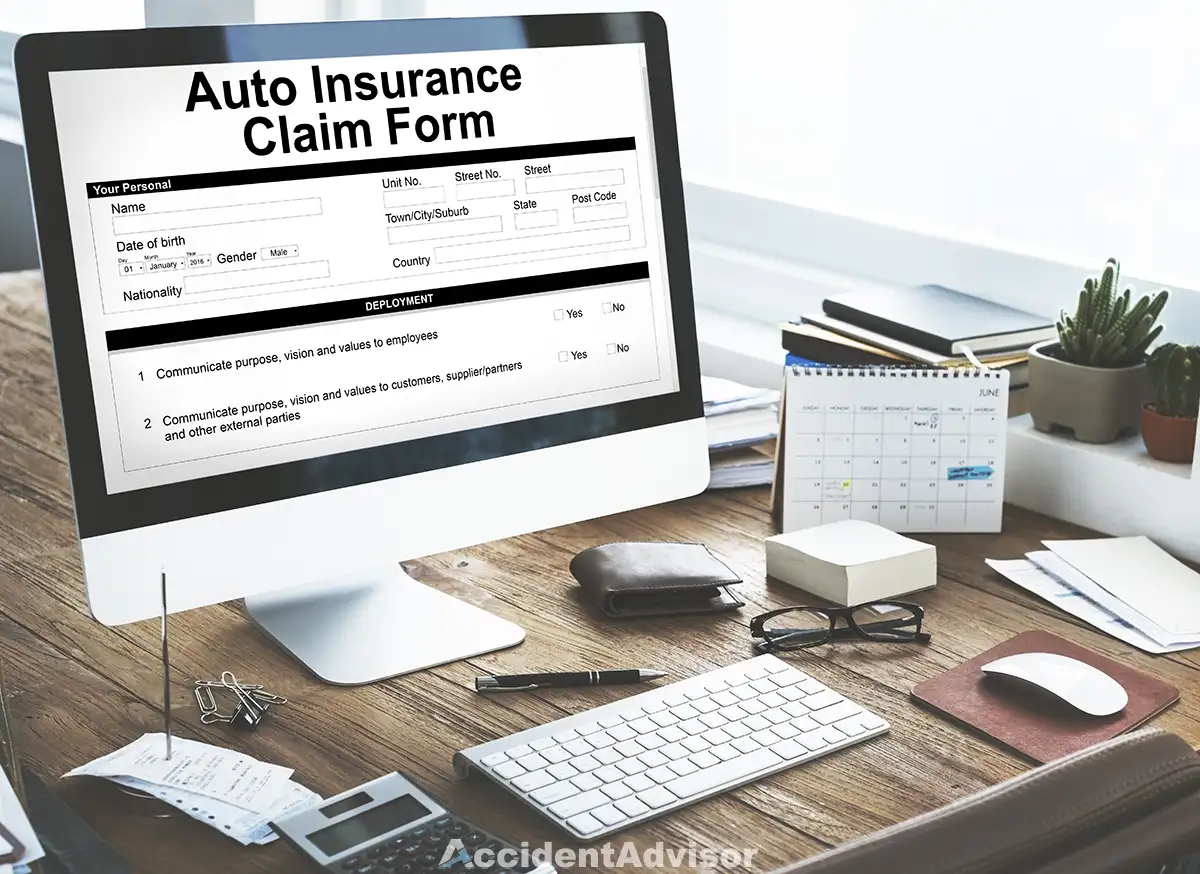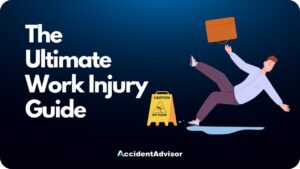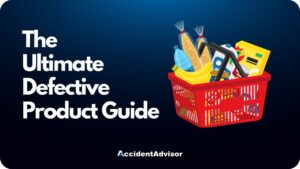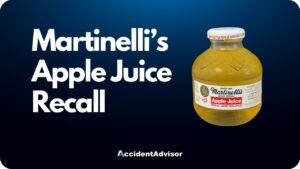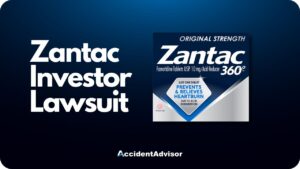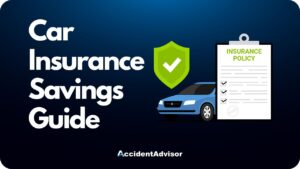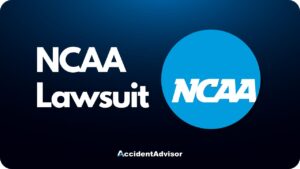If you were in a car accident, you should file a car insurance accident claim to recoup your medical expenses. However, filing for compensation is a lengthy process with many pitfalls. Those with little experience in the filing and negotiation process may find themselves at the mercy of the insurance adjusters of both policies, who will work tirelessly to reduce or deny your accident claim.
These steps and clarifications will help you file a successful car insurance accident claim. Speak with an experienced car accident attorney to learn more. They’re the ones who will be in your corner when negotiations begin, not the insurers.
Table of Contents
- Gather Evidence at the Scene
- Notify Your Insurance Company
- Review Your Policy Documents
- Meet with the Insurance Adjuster
- Receive a Settlement Payment
- Repair or Replace Your Vehicle
- What if the Other Driver’s Insurance Company Contacts You?
- What if You Were NOT at Fault for the Accident?
- Fault vs No-Fault States
- Should I Claim a Minor Car Accident?
- When to File a Car Accident Lawsuit?
- Conclusion
Gather Evidence at the Scene
The first step to filing a successful car insurance accident claim is to gather evidence at the scene of the accident. This evidence should include photos of the vehicle and property damage as well as of the license plates of the cars involved.
You should also gather information, such as the other driver’s name, address, phone number, insurance policy number, and car information. Remember to collect the contact information of any witnesses to corroborate your claims later.
Finally, once the police arrive on the scene, they will gather evidence and begin filing a report. Make sure you obtain a copy of the report’s case number so you can retrieve it later.
Notify Your Insurance Company
Most policies require that you to notify your insurance company if you are involved in an accident, regardless of fault or damage. An agent will instruct you on how to begin the claims process from the insurer’s website.
If anyone was injured in the accident, you should always contact your insurance company, regardless of fault. If you have collision coverage and extensive damage, it is usually a good idea to file a claim with your insurance company, regardless of fault.
If you do not have collision coverage, there were no injuries, and you were not at fault, then it may be better to only file a claim with the other driver’s insurance company. This is because your insurance will likely not pay anything in this scenario and may raise your rate regardless. If damage is less than or similar to your deductible, it may also not be worth notifying your insurance company.
When contacting your insurance company, they will also ask you for information, including photos, the police report, and the other driver’s information. Later, you will also provide them with medical bills and an estimate of future medical expenses.
This information will factor into the preliminary calculations of your settlement, so make sure that you calculate it accurately. Speak with an attorney as soon as possible so that you don’t leave anything out of your initial report.
Review Your Policy Documents
Your insurance policy documents will factor heavily into your final car accident case settlement, including your deductible, accident coverage, and more.
The circumstances of the accident change which documents will be relevant. For instance, if you crashed while driving a rental car, your insurance policy will pay your settlement based on your rental car coverage, which is separate from coverage for vehicles you own.
You can discuss the fine print of your accident policy with your insurance agent to get a better idea of what is covered and what isn’t in your unique situation. Remember to be careful discussing accident or medical details with the insurance company, especially the insurance company’s adjusters, who will use everything possible to reduce your compensation.
Meet with the Insurance Adjuster
You will eventually have to meet with an insurance adjuster after the accident to begin negotiations for your claim. They will inspect your case and will likely ask for detailed quotes on repairing or replacing your vehicle, as well as itemized lists of medical expenses.
The insurance adjuster is not your friend, so it’s important to refrain from discussing anything with them except the facts. Even an offhand statement like “I’m doing fine” can hurt your case as they may take this as evidence that your injuries are not as severe as you claim.
Accurate quotes of monetary damages are significant at this point in your claim, which is why a car accident attorney’s experience with organizing evidence in similar cases will come in handy.
Receive a Settlement Payment
If negotiations go your way, you will receive a settlement payment. Note that insurance adjusters sometimes contact you before the official negotiations, even as early as at the scene of the accident itself.
They may try to make you a lowball offer for compensation, hoping you won’t know that this denies you access to your full settlement. Never accept their initial offer and hold off on communicating with the adjusters at all until you’ve spoken with an attorney.
Additionally, your settlement will always be subtracted from your policy’s deductible, which is the amount you have to pay on your policy before the benefits activate. While the average deductible is $500, it can be as high as $2,000 or more, depending on your policy.
Repair or Replace Your Vehicle
Next, you will use your settlement payment to repair or replace your damaged vehicle. Even if the car costs more to replace than you expected, your settlement has been finalized at this point. This is why it’s important to make accurate calculations the first time.
Note that you could pay for the repairs before negotiating with the insurer if you are financially able to do so. This will not hurt your case as your entitlement to the money you spend on recouping the damage done to your car is not dependent on your financial ability to pay the repair costs directly.
What if the Other Driver’s Insurance Company Contacts You?
In addition to your own insurer, the other driver’s insurance company may contact you hoping to get an admittance of fault or other incriminating information. You are not obligated to talk with the other insurer, so ask your agent or lawyer what, if anything, you should say to them.
In general, the only information you should offer is the police report, the medical records of your current and future treatment expenses (not your medical history), and your insurer’s contact information.
They may ask questions in an attempt to get you to admit fault, discover a pre-existing condition, or find out more about the circumstances of the crash. Be careful when speaking to them, if your attorney gives you the okay to do so at all.
What if You Were NOT at Fault for the Accident?
The process of filing for a car accident insurance claim is similar regardless of whether you were at fault for the accident, though the process of notifying the insurers is slightly different. If you are not at fault for the accident, you should also notify the at-fault driver’s insurance company after you notify your own since their policy may be paying for the damages.
Discuss with your insurance agent how to do this since they may handle the negotiations with the other insurer or may require you to make contact and handle it yourself.
If you were not at fault, then the other driver will not likely be as motivated to notify their insurer or begin the claims process, so it might be up to you. As mentioned previously, if you do not have collision coverage, there were no injuries, and the other driver was at-fault, it may not be worth contacting your own insurance company since they likely won’t pay anything regardless.
File a Claim with Your Own Insurance and Pay the Deductible
If you have collision coverage or were injured, the fastest way to get compensation for the accident is to file your claim with your insurer. At this point, you will pay the deductible on your policy and begin the claims process, which will involve your insurer obtaining reimbursement from the at-fault driver’s insurer, if applicable.
What is Subrogation?
Subrogation is the process through which your insurer attempts to get reimbursed from the the at-fault driver’s insurance company. If successful, you may have your deductible refunded.
File a Third-Party Claim with the At-Fault Drivers Insurance Company
The second way to file a car accident insurance claim is to file a third-party claim with the at-fault driver’s insurer. This process is similar to filing with your policy, but it requires proof of fault to receive compensation since fault would be the basis for their liability in that instance.
Fault vs No-Fault States
All of this applies only to “fault states,” where liability falls to whoever caused the accident, and not to “no-fault” states, where drivers are compensated for the accident based on their coverage, regardless of fault.
In an at-fault state, the at-fault driver pays for all the damages that resulted from their actions. In a no-fault state, your insurer pays for some of your medical bills and expenses regardless of fault, though the at-fault driver’s policy still pays for the vehicle damage.
You need to know the fault status of your state before filing your claim. The states with no-fault insurance coverage are Kentucky, Kansas, Florida, Hawaii, Michigan, Massachusetts, Minnesota, New York, New Jersey, Utah, Pennsylvania, and North Dakota.
Should I Claim a Minor Car Accident?
Claiming a minor car accident could be advantageous if the deductible on your policy is low. However, if your repair estimates are near the cost of your deductible, then you probably shouldn’t file a claim, especially if you are at fault for the accident in an at-fault state.
The reason is that you likely won’t get much after paying the deductible, but the accident will go on your insurance policy records. This could end up raising your insurance premiums, especially if you were at fault for the accident, with little to no payout for the damages.
Even if you were not at fault for the crash, simply being in an accident and filing for damages could cause your insurer to hike your premiums.
When to File a Car Accident Lawsuit?
If your car accident insurance claim does not adequately cover your medical expenses and repair costs (or you are denied a settlement completely), you can opt to file a car accident lawsuit to recoup the damages.
As opposed to a case filed through the insurer, a car accident lawsuit is a personal injury case filed against the at-fault driver. Though their insurance coverage did not offer adequate payment for your damages, they will hire a lawyer to represent their driver once you file a case against them.
If you win the case, the opposing insurance company will pay the damages you sustained in the accident. If you lose or are proven to be at fault for the accident after all, you could run into problems. This is why representation from an experienced car accident attorney is important in an insurance claim but absolutely necessary in a car accident lawsuit.
Conclusion
Filing a car accident insurance claim can be difficult since both your insurer and the other driver will likely send adjusters to judge your case. You could be denied compensation if you file incorrectly or fail to prove the other driver’s fault in the accident. An experienced car accident attorney can help you make a winning claim by negotiating with the adjusters, assembling the right evidence, and advancing your claim to a car accident lawsuit if your settlement isn’t satisfactory.

Rocky Horton
Author
Rocky Horton is a health and safety expert from Chapel Hill, NC. He is the founder of AccidentAdvisor and has been featured in Forbes, Bloomberg, and other publications. Learn more.

